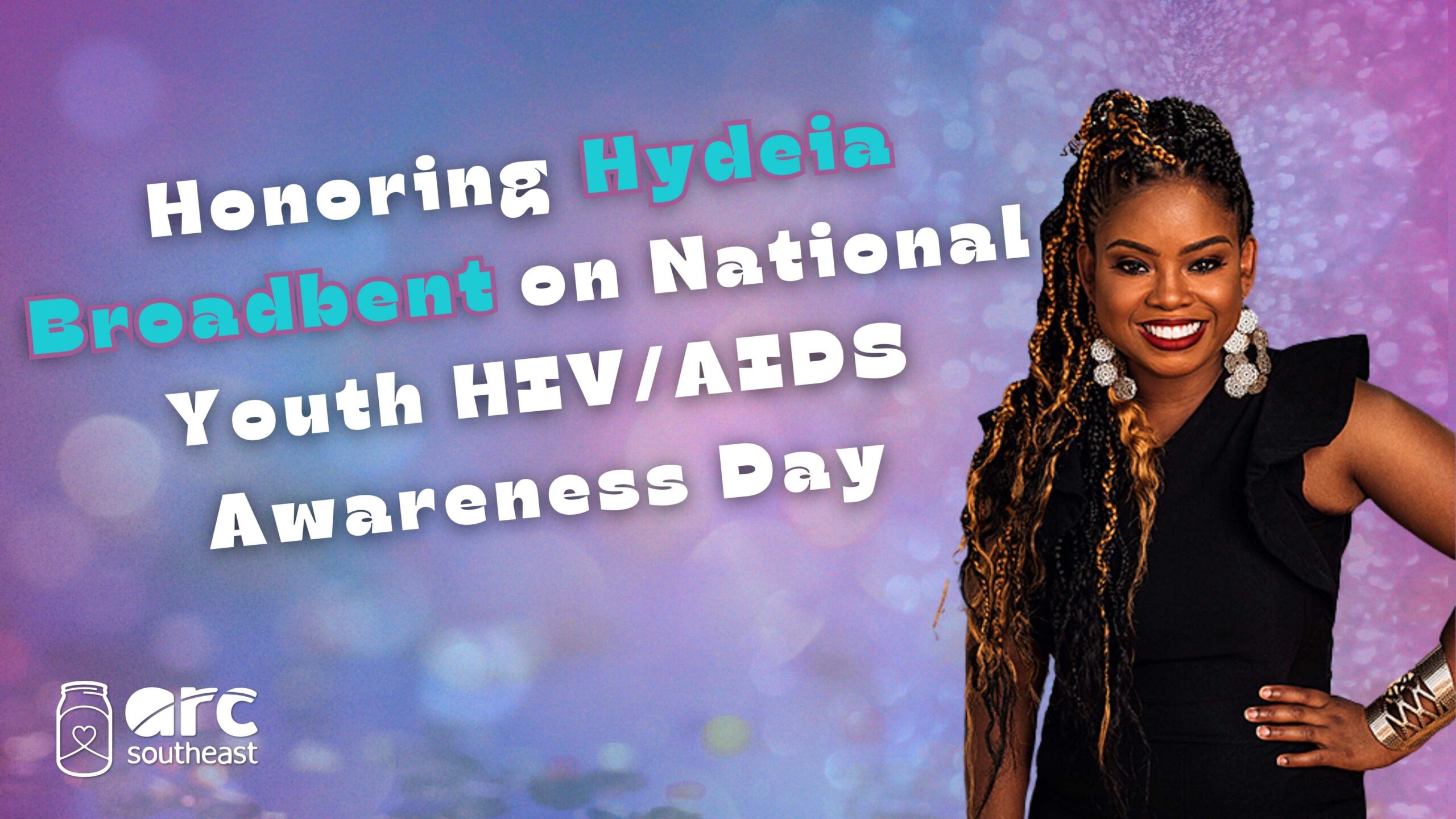By Nzingha H.
When we think of the leaders and trailblazers within the modern HIV/AIDS movement, we should look to none other than Hydeia Broadbent. Hydeia Broadbent was the youth voice that made the world listen. She elevated and uplifted the conversations about viral transmission, prevention, and the dismantling of stigma, at a time when these conversations were still relatively new and difficult to most. This blog post is a tribute to a Reproductive Justice sheroe who passed away this February of 2024.
Rest in Power, Hydeia.
Hydeia Broadbent was born in Las Vegas, Nevada in 1984. She was adopted by her parents, the Broadbents in the late 1980’s. Hydeia was born HIV positive and would take a myriad of treatments and medicines for her condition. Hydeia began to publicly speak about her experience living with HIV as a young child, appearing on Nickelodeon, Oprah, Maury and several other primetime television shows. On each appearance, the audience was faced with the reality of a sweet little girl sharing her story, an emotional one, and demanding for change. She was honored for her activism by several media outlets and organizations, including Jet Magazine and Essence Magazine.
Hydeia started us on our path, but it is up to us to finish the journey. HIV, known as Human Immunodeficiency Virus, is a virus that attacks the immune system. The virus attacks cells that help the body fight infection, making a person more vulnerable to other infections and diseases (immunocompromised). HIV can be transmitted through anal or vaginal sex, needle or syringe sharing or perinatal (mother-to-fetus) transmission. Symptoms of HIV include fever, chills, fatigue, swollen lymph nodes, muscle aches, and rashes. Some people who are living with HIV do not experience any symptoms; this why it is necessary for all vulnerable populations to test for HIV and other STI’s every three to six months.
HIV is preventable using PrEP, or Pre-Exposure Prophylaxis. PrEP is an oral or injectable medication used to prevent HIV. PrEP has been found to reduce the risk of HIV transmission by 99%! People living with HIV can live healthy, fulfilling lives while adhering to medication — so long as they have free, comprehensive healthcare and access, without barriers. ART(s), or Antiretroviral therapy medications suppress the virus in the body.
Here are some quick statistics related to marginalized populations and HIV from the Office of Minority Health:
- Although Black/African Americans represent almost 13 percent of the U.S. population, they account for 42.1 percent of HIV infection cases in 2019.
- In 2020, African Americans were 7.8 times more likely to be diagnosed with HIV infection, as compared to the white population.
- African American males have 8.1 times the AIDS rate as compared to white males.
- African American females have 15 times the AIDS rate as compared to white females.
- African American men are 6.0 times as likely to die from HIV infection as non-Hispanic white men.
- African American women are 15.3 times as likely to die from HIV infection as white women.
It is estimated that about 39 million people around the world are living with HIV. We have the information, we have the tools, we have the strategy, it is up to us to be the co-conspirators right alongside our peers living with HIV to lead us to #EndTheEpidemic. There have been attempts to cut federal funding for HIV research and community support programs from Republican congress members and conservative Democrats alike. That simply is unacceptable. Free PrEP, especially for TLGBQ+ peoples, is vital on our journey to stop the HIV epidemic. Free HIV education, prevention, and treatment would not only lead to health equity, but also help dismantle stigma, harm, and serophobia in marginalized communities.
Reproductive justice affirms the right to self-determination and bodily autonomy, and demands us to have access to the resources we need to care for ourselves and our families — without financial, racial, geographical, or any other barriers. As southerners, we know all too well about health inequities and discrimination. Many southern states, including Georgia, have not expanded medicaid, a source of public insurance for people living with HIV. We cannot ignore the realities of living in a political era where reproductive rights are viewed as disposable and expendable, in the same way that many people with HIV/AIDS are also seen as disposable and expendable.
From alarming maternal mortality rates and repressive abortion bans, to the dismantling of DEI efforts in Southern university systems, all of these issues are interconnected and influence the ways we are able to achieve health equity. Living and organizing as reproductive justice advocates, we know that access to PrEP, ART(s), childcare, mental healthcare, reproductive care, and financial resources are all pivotal for people living with HIV. Reproductive justice allows us to envision and create a world where our siblings have what they need to live healthy, fulfilling lives, with no barriers, because our human rights demand nothing less.
On this journey, it is crucial to support and show up for our comrades living with HIV. Serophobia is still a hurdle in the battle of HIV equity. We must always stand up and fight stigmatized language against people living with HIV and AIDS. If you hear it, call it in. Have the conversation. We must always protect and fight alongside our siblings living with HIV, because we cannot be free if they are not free.
Hydeia was a dandelion. Dandelions are children who were born or diagnosed with HIV in infancy or childhood. To honor Hydeia, and so many amazing Black women living with HIV, be sure to check out these resources.
Living with HIV:
https://www.thewellproject.org
HIV Testing:
https://www.positiveimpacthealthcenters.org/drive-up-hiv-testing/
